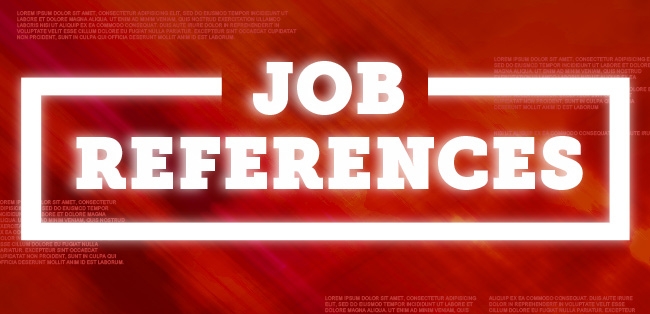
The Backdoor Reference, And Why It Is Keeping You From Being Hired
Many of our candidates over the years have done a phenomenal job of culling their professional references. Each reference has been notified, “I would like to use you as my professional reference.” Really organized candidates take the time to notify their references, “I am searching for a new position. You may be contacted shortly.”
Now, there’s a category of positions and employers for whom this is the beginning and end of the story. They outsource reference-checking to an offshore company, or down source it to their lowest level administrative personnel. These references can and may answer standard questions about a candidate’s punctuality, role, reporting structure, weaknesses and strengths. For good measure, they will also answer that they would, in fact, rehire this candidate. Some may tow the company line and direct these reference checkers toward HR, where “we only confirm title and dates of employment” will suffice. From these bare minimum-level references, the job offer is written.
But, let’s face it. Most senior-level positions require a more thorough, personalized, truthful and yes, “backdoor” reference. So, why does this catch so many candidates off guard? And, importantly, what should you do to improve your backdoor references?
First, what is a backdoor reference?
A backdoor reference check involves obtaining a reference from a person whose name was not provided by the candidate. For example, the hiring manager has rapport with someone with whom the candidate worked at the candidate’s former or present employer, who can shed light on how he or she performed.
Why is the backdoor reference useful to prospective employers?
Simply, the interviews and traditional references are just not enough. Consider whether you ever made a hiring decision after multiple interviews with you and your team, and after having your HR conduct a standard reference check, then been surprised, 30 days later, when the new hire was not getting up to speed as you’d expected? There is often that, “this is not the person I/we interviewed” feeling, too. This is where the backdoor reference would have been helpful – where you ask someone you trust, with whom this employee worked previously, “how long will it take Jack to get up to speed, given my environment, training regimen, team profile, etc.
In an interview, technical skills can be tested, promptness and presentation reviewed, and an evaluation of communication skills and cultural fit for a company conducted. What you cannot test is how someone will perform on the job until he or she has actually worked for you OR you talk to someone whose opinion you trust that will tell you candidly how an individual performed in a previous role. What you’ve hired, is someone who performs well in an interview. What you needed was a person who can perform well in the job.
Even if you do not outsource or down source the reference checking task, candidate-provided references are only minimally useful. I do recommend these references be called as well. But, they should be taken with a grain of salt. Ask yourself, would this candidate really connect me with someone who will freely share his flaws?
Is this practice ethical?
Asking a mutual acquaintance for his or her opinion is neither unethical nor unfair. With LinkedIn and other social media sites helping us shrink the professional world even further, it’s safe to say that the backdoor reference is even expected at this point.
But, with that said, while technically fair game, it’s important to realize that the passive candidate (i.e., the one who is still employed, while interviewing with you) is put at risk if you call his or her current employer for a reference. When in doubt, ask the candidate whether it’s common knowledge that s/he is considering a career change, prior to making that call.
So, as a candidate, what should you do? How do you identify who in your network may be called as a backdoor reference?
A good place to start is (you guessed it,) LinkedIn. If you search by company name, and enter your prospective employer’s name, how are you connected to others who work there? Chances are, one of the “2nd level” connections will call someone you have worked with – in other words, you both share connections. That is who will be called. Another guess is to look at the prospective employer’s employees in general. Did many come from the same company, and do you know people there? Again, if you do your detective work, you can guess at who will be reaching out to whom to dig up a reference on you!
What should you do if you have a feeling your references may be harming you?
The best advice we give colleagues and friends, ask for feedback if you are not being hired. If you know you interviewed well, ask the recruiter to be candid with you as to why you were not selected you. Ask point blank, “did someone conduct a backdoor reference, and was it not positive?” They may not tell you who was called, and may not tell you what was said. But, most recruiters will be able to find out for you and confirm, “Yes, the hiring manager received poor feedback on you.”
How can you prevent certain ones from being called?
Ultimately, there’s not much a candidate can do to shield him/herself from anyone and everyone being called as a reference. In a perfect world, each of us would remember this as we interact with others at each of our jobs, throughout our career. But, everyone is fair game. Tactics such as pre-emptively badmouthing people are often utilized – but never recommended.
How can you fix your Backdoor References?
We highly recommend making amends in all places where amends needs to be made. Sounds simple, right? Well, if your backdoor references are hurting you, consider sitting down with a boss who fired you, a peer who hated you, a subordinate you fired, or a colleague with whom you just “didn’t get along”. Call for a sit down, and let this person know that you know you ended on a rocky note, but that you valued what you learned from him/her, that you regret how things ended, and that you’d like to know how to make things right. If you have to blow a little sunshine, blow away. This is your career, and your livelihood at stake. If nothing else, say “I know I may not have been your favorite person, but I’d like to make a truce when it comes to professional references. I’m worried those prospective employers may call you and that you may give negative feedback. Is there anything I can do to persuade you not to?”
Does this sound uncomfortable to you? It must. But, what is more uncomfortable, facing the person harming you, or suffering the harm? Ultimately, the fix is yours to be had.




